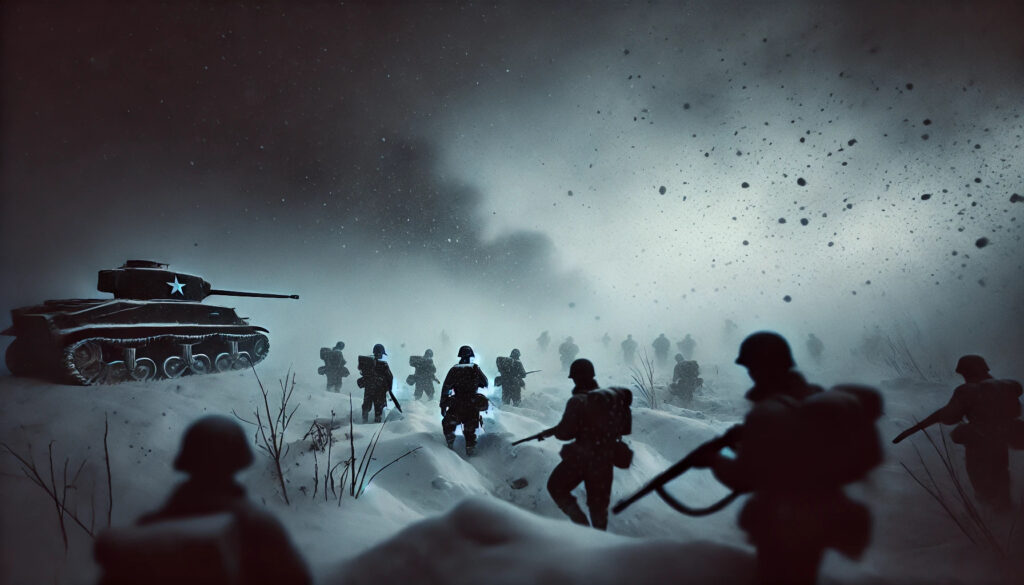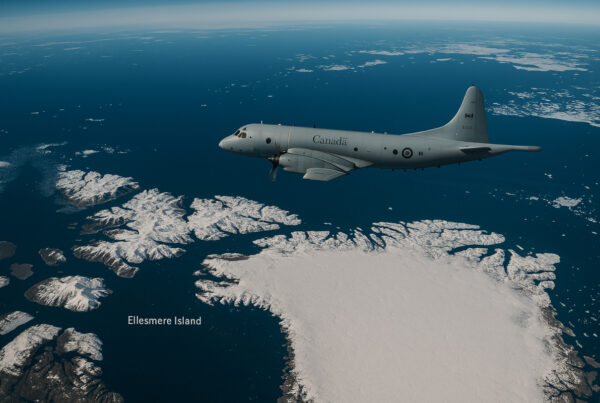
North Korean troops in a snowy, cold landscape (DALL-E)
The recent deployment of North Korean troops to Russia has prompted a swift and calculated response from South Korea. With around 8,000 North Korean soldiers reported to be training near the Ukrainian border, the South Korean government is exploring a range of countermeasures to address this new threat and maintain regional security. These measures, if implemented, could signal a significant shift in South Korea’s defense policy and influence the international landscape.
A Turning Point: South Korea’s Consideration of Lethal Aid to Ukraine
Historically, South Korea has maintained a policy of non-intervention in conflict zones, especially in regard to providing lethal aid. However, as North Korea inches closer to active involvement in the Ukraine conflict, this stance may be evolving. According to recent government sources, South Korea is weighing the possibility of supplying Ukraine with arms to counterbalance the aid provided by North Korean forces to Russia. This unprecedented consideration demonstrates South Korea’s heightened sense of urgency as Pyongyang aligns more openly with Moscow.
By potentially supplying weapons to Ukraine, South Korea could position itself as a more active player on the international stage, directly opposing North Korean-Russian military cooperation. This decision would not only bolster Ukraine’s defense but also serve as a deterrent to North Korea, signaling that South Korea is prepared to counter any destabilizing moves in the region.
Phased Countermeasures Against North Korea and Russia
South Korean officials have indicated that they plan to implement “phased countermeasures” based on the scale and progression of North Korea’s involvement with Russia. This strategy allows for flexibility, enabling South Korea to adjust its response as the situation evolves. These countermeasures could span diplomatic, economic, and military dimensions, depending on the level of threat posed by North Korean-Russian collaboration.
While specific details remain under wraps, experts suggest that these measures might include tightened sanctions, diplomatic pressure, and increased defense cooperation with allies in the West. Such a multi-faceted approach underscores South Korea’s commitment to addressing the security implications of North Korea’s support for Russia while minimizing any adverse effects on regional stability.
Strengthening International Collaboration
In addition to considering unilateral actions, South Korea is actively engaging with international partners to develop a coordinated response. President Yoon Suk Yeol has held discussions with NATO Secretary-General Mark Rutte to highlight the potential risks of North Korean involvement in Ukraine. As part of this collaborative approach, South Korea has announced plans to dispatch a delegation to NATO to exchange intelligence and discuss further security measures.
This international alignment signals a broader acknowledgment of the global impact of North Korea’s actions in Ukraine. By working closely with NATO and other allies, South Korea aims to reinforce the security alliance and deter North Korea and Russia from further escalating their military partnership.
Implications for Regional and Global Security
South Korea’s potential shift toward providing arms to Ukraine and its collaborative stance with NATO highlight a changing security paradigm in East Asia. North Korea’s willingness to openly support Russia has added new layers of complexity to the geopolitical landscape, prompting South Korea to reconsider its own security policies and international alliances.
For Canada and its allies, the developments in Ukraine underscore the need to closely monitor North Korea’s actions and their ripple effects on global security. South Korea’s response could shape future defense strategies, as the country shifts from a passive to a proactive role in countering threats to international peace. By taking a stand against North Korean-Russian cooperation, South Korea reinforces its commitment to regional stability and supports the broader international coalition working to deter aggression in Ukraine.








